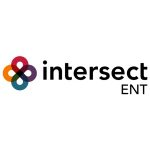 Intersect ENT (NSDQ:XENT) yesterday released disappointing 3rd quarter earnings that fell well below Street expectations, sending shares plummeting.
Intersect ENT (NSDQ:XENT) yesterday released disappointing 3rd quarter earnings that fell well below Street expectations, sending shares plummeting.
Intersect ENT reported losses of $9.7 million, or 35¢ per share, on sales of $14.2 million for the 3 months ended September 30. That amounts to a 65.5% increase in losses on sales growth of 56.4% compared with the same period last year.
Wall Street analysts expected to see losses per share of 14¢, over 20¢ lower than Intersect ENT reported. Revenue was off Street expectations by $7 million.
Shares have fallen stiffly, dropping 26% to $16.06 as of 11:22 a.m. EST.
“Our progress this year demonstrates the value we are delivering to chronic sinusitis patients through Propel’s proven ability to improve surgical outcomes. We also achieved significant advances in our pipeline of potential new products through both our clinical milestones and the recent clinical data presentations,” CEO Lisa Earnhardt said in prepared remarks.
Leerink Partner analyst Richard Newitter said that despite the poor quarter, he remains bullish on the company.
“From here, XENT turns into a showme story and as such it could take a few [quarters]. before investors regain confidence in mgmt.’s ability to drive higher rep productivity and execute on reset expectations. Still, we view guidance as a “clear-thedeck” level off of which XENT should be better positioned to “beat & raise” going forward and reiterate our OP,” Newitter wrote in a letter to investors.
In June, Intersect ENT said it closed its public offering of 4.1 million shares of common stock at $25 per share.
The deal included 537,300 shares sold through an underwriters option to purchase additional shares, and resulted in aggregate proceeds of approximately $103 million, the Menlo Park, Calif.-based company said.
Intersect Ent, maker of drug-eluting devices designed to treat ear, nose & throat conditions, raised $55 million in an initial public offering last July. The company raised a $30 million Series D round in February 2013 that included a contribution from Medtronic. An earlier round in November 2010 also raised $30 million.

